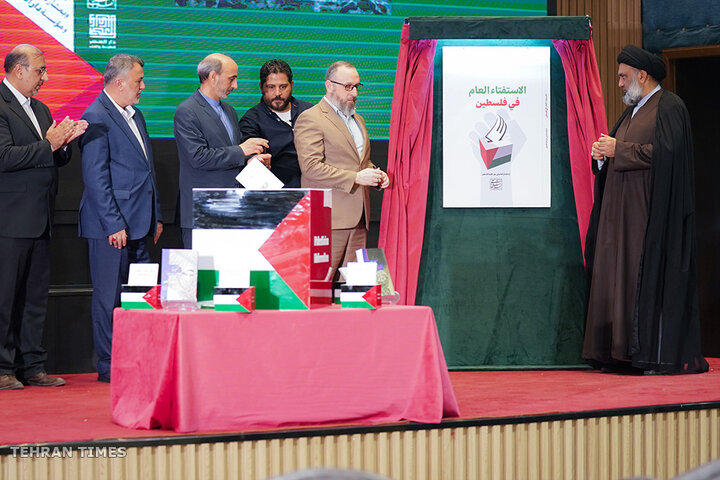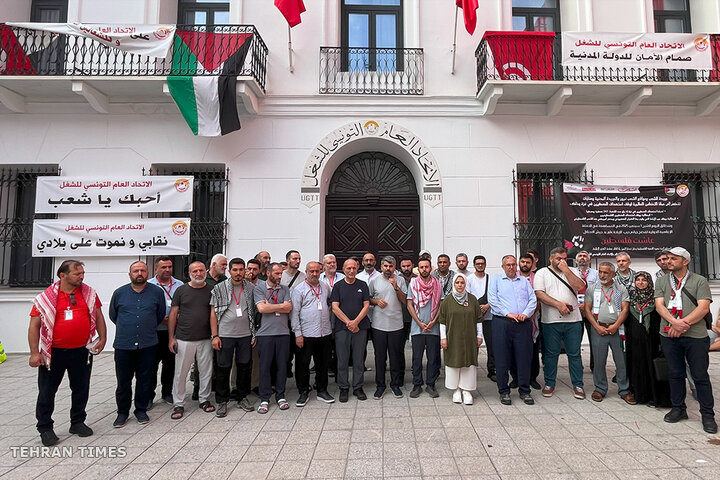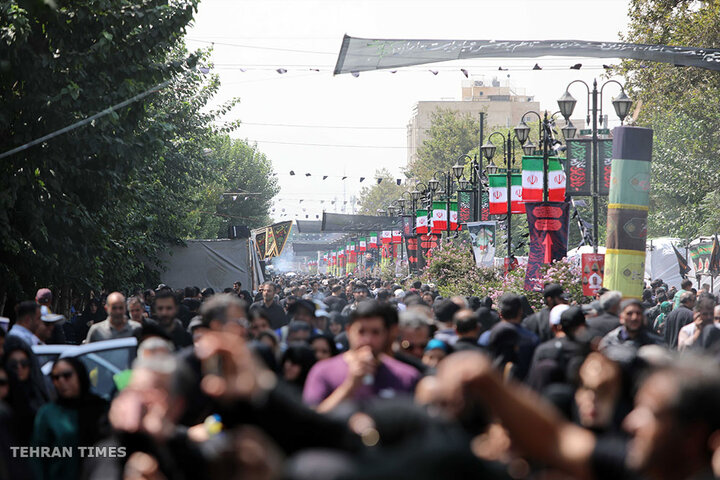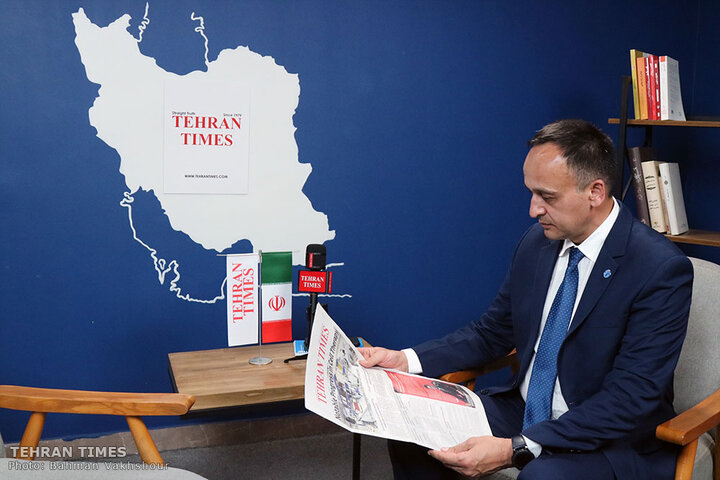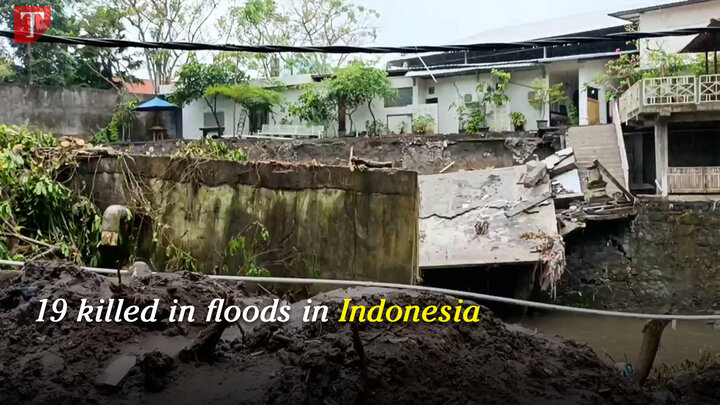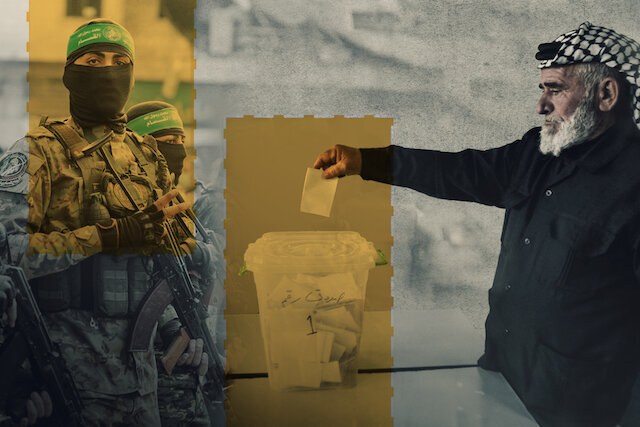-
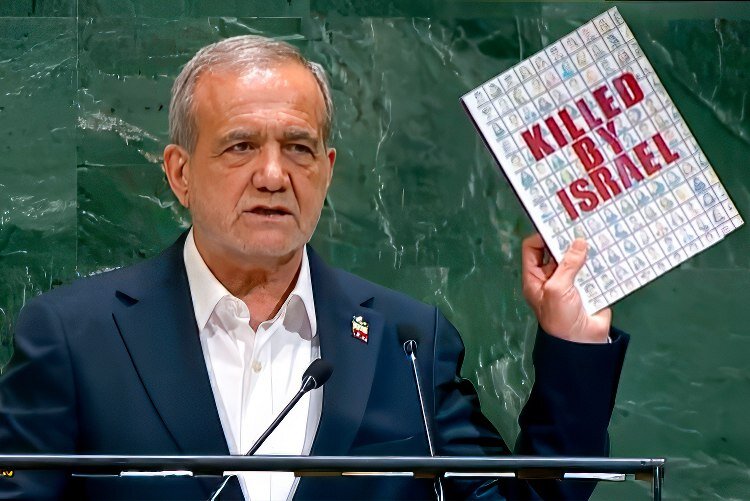 2025-09-24 20:31
2025-09-24 20:31
By Soheila Zarfam
Pezeshkian says US and Israel ‘betrayed’ trust and diplomacy
President adds E3 acted on Washington’s orders to resurrect dead UN sanctions against Iran
TEHRAN – In his second address to the UN General Assembly since taking office in 2024, Iranian President Masoud Pezeshkian said the US-Israeli war imposed on Iran earlier this year was a "great betrayal of diplomacy" that has crippled the prospect for regional peace
-
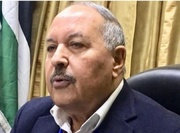
By Sahar Dadjoo
EXCLUSIVE: Global recognitions of Palestine send message to Washington, says ex-Palestinian official
Khalid Abd al-Majid says wave of Palestinian recognition is fruit of people’s sacrifices
TEHRAN- As international momentum builds up behind the recognition of the Palestinian State, several Western countries—France, Canada, Britain - have officially recognized the Palestine State.
-
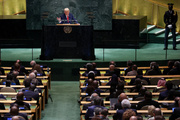
By Faramarz Koohpayeh
How many lies did Trump tell about Iran in his speech at the UN General Assembly?
TEHRAN – The U.S. President Donald Trump’s speech at the United Nations General Assembly on Tuesday was less a diplomatic statement than a performance of falsehoods and distortions.
-

By Meysam Rafiee
Ideology with a democratic flavor
Reviewing the actions of the Middle East's sole democracy in Gaza
TEHRAN - Israel presents itself as a beacon of democracy in the Middle East, claiming to be the region's only democratic structure. However, this self-portrayal stands in stark contrast to its actions.
-

By Garsha Vazirian
Israeli drones in the dark and the flotilla the world lets bleed
TEHRAN – In the small hours of Wednesday, activists aboard the Global Sumud Flotilla reported a night of sustained aerial harassment: low-flying drones, at least 13 detonations around vessels, objects dropped on decks, and deliberate jamming of ship radios as crews dived for cover.
-
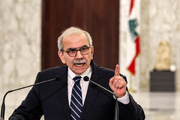
By Sondoss Al Assad
PM’s childish behavior toward Hezbollah’s popular base
BEIRUT — Sayyed Ali Khamenei, the Leader of the Islamic Revolution, has reiterated Martyr Sayyed Hassan Nasrallah “was a source of wealth for the Islamic world, not just for Shiites.”
Politics
-
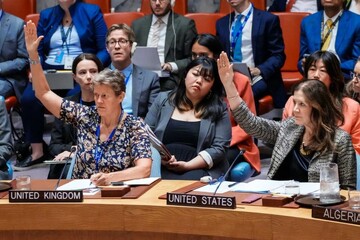
US will stop at nothing to assert dominance over other nations: Sierra Leone scholar
TEHRAN – In a dramatic development at the United Nations last Friday, September 19, 2025, the Security Council voted against a proposal to extend sanctions relief for Iran, paving the way for the automatic re-imposition of previous UN sanctions under the so-called “snapback” mechanism.
-
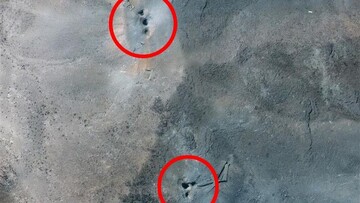
Nuclear chief says Iranian facilities damaged in US strikes will be rebuilt
TEHRAN – Iran’s nuclear chief and Vice President, Mohammad Eslami, has said that nuclear facilities damaged during U.S. airstrikes will be fully rebuilt, stressing that Iran’s scientific and technological foundations remain strong and cannot be destroyed by foreign aggression.
-
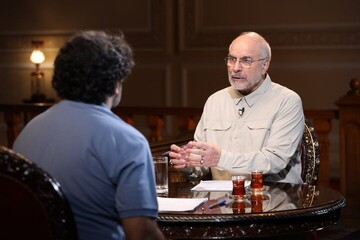
True Promise IV to be executed with more precision if Israel attacks again: Qalibaf
TEHRAN – Iran’s Parliament Speaker Mohammad Baqer Qalibaf has praised the success of Operation True Promise III and warned that any new aggression by the enemy would be met with an even more powerful and precise response under Operation True Promise IV.
Sports
-

Five Iranians nominated for AFC Awards 2025
TEHRAN - The Asian Football Confederation (AFC) announced the highly anticipated list of nominees for the AFC Awards Riyadh 2025 presented by NEOM, which will take place on Oct. 16.
-

Iran U17 handball crowned Asian champions
TEHRAN – Iran defeated South Korea 28-25 in the final match of the 1st Asian Men’s U17 Handball Championship on Thursday at the Princess Sumaya Hall in Amman, Jordan.
-

Persepolis, Malavan share the spoils: PGPL
TEHRAN – Persepolis football team were held to a goalless draw against Malavan in Matchweek 5 of the 2025/26 Iran’s Persian Gulf Professional League (PGPL) on Thursday.
Culture
-
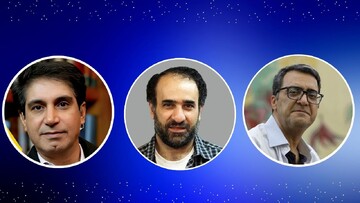
Iran participates in inaugural BRICS Literary Award with three authors
TEHRAN – Iran has introduced three writers to represent the country at the inaugural BRICS Literary Award, a newly established global event.
-
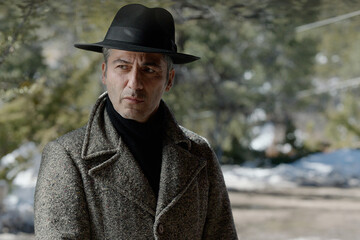
Shahab Hosseini’s 4th film as director “The Last Act” will hit silver screen across Iran
TEHRAN – The feature film “The Last Act,” a joint production of Iran and the U.S., directed and produced by Shahab Hosseini will hit Iranian cinemas from October 1.
-

Iranian shorts competing in Encounters Film Festival
TEHRAN- Four Iranian short films are competing in the 30th edition of the Encounters Film Festival, currently underway in Bristol, England.
Economy
-
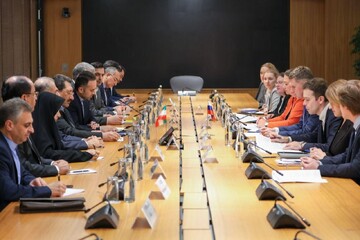
Tehran, Moscow hail free trade deal as turning point in economic ties
TEHRAN – Iran’s Industry, Mining and Trade Minister Seyed Mohammad Atabak met Russian Economic Development Minister Maxim Reshetnikov in Moscow during the first joint committee session on implementing the Iran–Eurasian Economic Union (EAEU) free trade agreement.
-
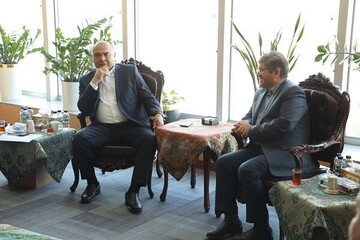
Iran, Uzbekistan target 2m tons of rail trade by 2026
TEHRAN – Iran and Uzbekistan have set an ambitious target to more than double their rail freight exchanges to 2.0 million tons by 2026, the head of Iranian Railways said after talks with his Uzbek counterpart.
-
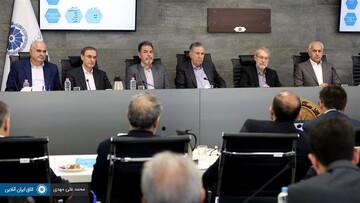
Iran security chief meets business leaders, pledges support for private sector
TEHRAN – Ali Larijani, secretary of Iran’s Supreme National Security Council, met with the board and private sector representatives of Iran Chamber of Commerce, Industries, Mines and Agriculture (ICCIMA) on Tuesday, delivering assurances that the government would strengthen support for business activity despite sanctions.
Society
-
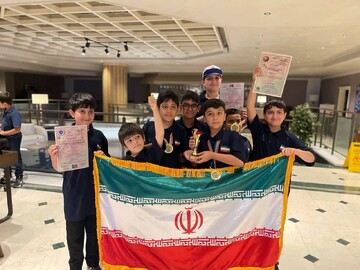
Iranian robotics team shines at TEKNOFEST 2025
TEHRAN – Iranian students have secured first and second places in the inventions and innovative technologies area in TEKNOFEST competition, showcasing new Iranian youths' capabilities in robotics, artificial intelligence, and technological innovations fields.
-

Intl. Congress on Cancer Prevention slated for October
TEHRAN – Organized by the University of Zanjan, the second International Congress on Cancer Prevention is scheduled to take place from October 1 to 2, aiming to foster research collaborations with national and international educational institutions, NGOs, and ministries.
-
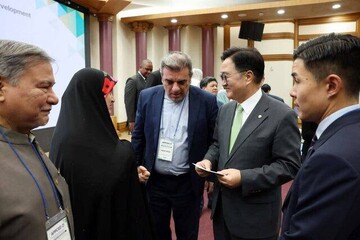
Iran attends 21st APPCED on ‘climate resilience’
TEHRAN – An Iranian delegation led by Somayyeh Rafiei, MP and the vice president of the Asia-Pacific Parliamentarians Conference on Environment and Development (APPCED) executive committee, participated in the 21st APPCED, held in South Korea on September 23.
Tourism
-
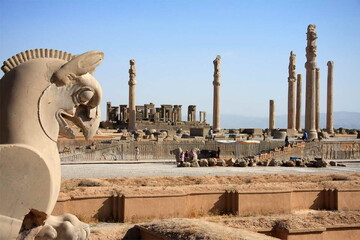
Archaeologists uncover early Elamite burial near Persepolis in southern Iran
TEHRAN - Archaeologists have discovered evidence of an early Elamite jar burial and traces of kiln waste at Tol-e Roubahi Kenareh, less than two km south of the UNESCO World Heritage site of Persepolis in southern Iran.
-
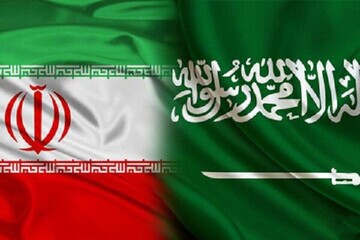
Iran-Saudi Arabia ties serve interests of both countries, Salehi-Amiri says
TEHRAN – Iran’s Minister of Cultural Heritage, Seyyed Reza Salehi-Amiri, said strengthening relations with Saudi Arabia is in the interests of both nations, speaking at a ceremony marking Saudi National Day at the Espinas Palace Hotel in Tehran on Tuesday.
-
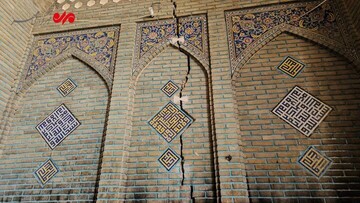
National taskforce formed to address subsidence threat to Isfahan monuments
TEHRAN – Iran’s government cabinet has approved the formation of a National Taskforce to Combat Subsidence, which will operate under the supervision of the First Vice President, to safeguard Isfahan’s historical monuments and world heritage sites, Amir Karamzadeh, head of the Isfahan Cultural Heritage Department, said.
International
-

Ideology with a democratic flavor
TEHRAN - Israel presents itself as a beacon of democracy in the Middle East, claiming to be the region's only democratic structure. However, this self-portrayal stands in stark contrast to its actions.
-

Israeli drones in the dark and the flotilla the world lets bleed
TEHRAN – In the small hours of Wednesday, activists aboard the Global Sumud Flotilla reported a night of sustained aerial harassment: low-flying drones, at least 13 detonations around vessels, objects dropped on decks, and deliberate jamming of ship radios as crews dived for cover.
-

PM’s childish behavior toward Hezbollah’s popular base
BEIRUT — Sayyed Ali Khamenei, the Leader of the Islamic Revolution, has reiterated Martyr Sayyed Hassan Nasrallah “was a source of wealth for the Islamic world, not just for Shiites.”
Video Comment
-
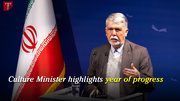
Culture minister highlights year of progress in arts, global image enhancement
-

Gazan Journalists attacked by Israel
-
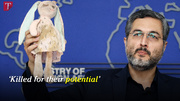
Brother of Iranian scientist murdered in Israeli strike speaks out
-
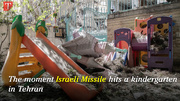
Footage shows Israel hit a kindergarten in Tehran
-
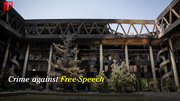
Delegates and ambassadors from 28 countries visited the IRIB building
Most Viewed
-
‘Nuclear talks with US won’t serve Iran’s national interests’
-
Pezeshkian says US and Israel ‘betrayed’ trust and diplomacy
-
Iranians set to join Global Sumud Flotilla from the country's southern waters
-
How many lies did Trump tell about Iran in his speech at the UN General Assembly?
-
Nuclear chief says Iranian facilities damaged in US strikes will be rebuilt
-
Iran to launch light satellites from Shahid Soleimani constellation this year
-
Hezbollah: One year after the large-scale aggression
-
True Promise IV to be executed with more precision if Israel attacks again: Qalibaf
-
China is a trustworthy partner
-
Ahead of Pezeshkian’s New York arrival, Iranians say security is a right, not a privilege
-
Trump in cloud cuckoo land: US out of step as Palestinian cause dominates UN
-
The ex-Israeli spy chief and the big question: Zakaria, Cohen, and Iran’s horizon
-
Tehran, Moscow hail free trade deal as turning point in economic ties
-
Israeli troops killed in Gaza City
-
PM’s childish behavior toward Hezbollah’s popular base
